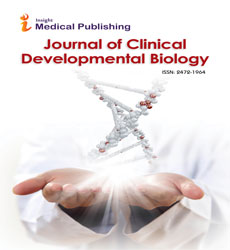Antifungal Drug Sensitivity in Clinical Isolates of Candida albicans Isolated from Nanded
Phule Datta Baburao
Department of Microbiology, S.R.T.M. University Nanded, Maharashtra, India.
Received Date: 2022-08-07 | Accepted Date: 2022-08-15 | Published Date: 2022-08-29Abstract
Obesity is typically Candida albicans is a serious fungal pathogen of the humans. It is a part of the microflora of healthy individuals .Under immunocompromised conditions this fungus can cause a variety of infections ranging from superficial skin infections to systemic blood borne infections, collectively called as candidiasis. In immunocompromised individuals like cancer, HIV, Tuberculosis and Diabetics patients it could be life threatening. Candida can also cause oropharyngeal & urogenital infections. Candida albicans is also a gynecological pathogen & can cause considerable discomfort in women. Candida albicans are reported to cause vulvovaginal candidiasis. Limited number of antifungal drug are available currently. Fluconazole is very widely prescribed, while Amphotericin B is used in terminally ill patients. Ketocanazole is used in shampoos to get rid of dandruff associated fungi. Echinocandin group of antifungals like: Caspofungin, Anidulafungin, Micafungin which target cell wall synthesis are not widely prescribed in India due to their high cost. Resistance to antifungal antibiotics is a serious problem to patients, physicians as well as drug developers. Resistance to various antifungal agents like Fluconazole, Amphotericin B, Echinocandin and Ketocanazole are reported from all over the globe as well as in India. Most of the Candida albicansinfections involve formation of biofilm. Biofilms of Candida albicans are highly resistant to the widely prescribed antifungal antibiotics. In addition most of the antibiotics used also cause side effects in humans.
Open Access Journals
- Aquaculture & Veterinary Science
- Chemistry & Chemical Sciences
- Clinical Sciences
- Engineering
- General Science
- Genetics & Molecular Biology
- Health Care & Nursing
- Immunology & Microbiology
- Materials Science
- Mathematics & Physics
- Medical Sciences
- Neurology & Psychiatry
- Oncology & Cancer Science
- Pharmaceutical Sciences
